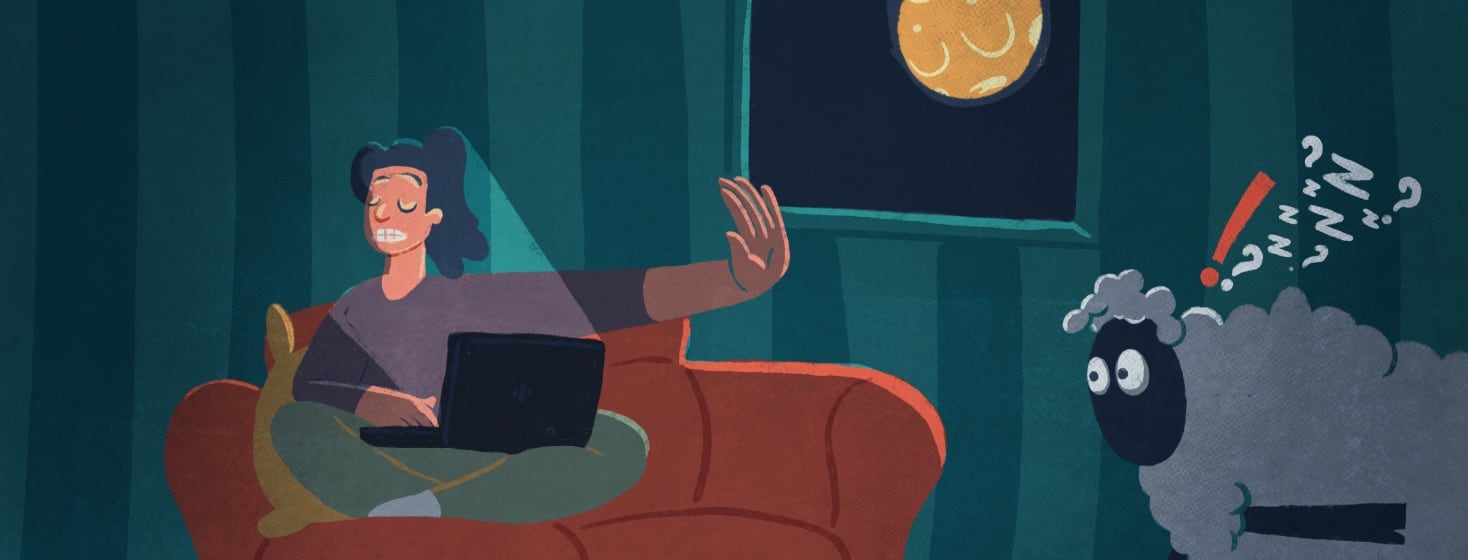Lupus and My Struggle with Revenge Bedtime Procrastination
The year of the pandemic has brought us few experiences outside of our homes, but certainly many new words and phrases. "Zooming," "lockdown," and "work from home" have all become part of the national vocabulary. Mental health terms unique to a year spent quarantining, like "post-pandemic anxiety," have also become popular. When I watched a YouTube video recently and heard a term I didn’t recognize, I looked it up immediately. As it turns out, "revenge bedtime procrastination" describes my nighttime routine perfectly.
What is revenge bedtime procrastination?
Revenge bedtime procrastination occurs when, after a busy day, you stay up past your scheduled bedtime because you are craving some relaxation time. No one wants to go from a full day of work, whether in the home or outside of it, straight to bed without unwinding. Without moments of relaxation throughout the day, we can feel resentful, stressed, or irritable.
That extra hour or so that we spend relaxing with a novel or zoning out in front of Netflix is actually an important part of self-care. It allows our minds to rest, reduces our stress, and helps us recharge so we can tackle tomorrow’s tasks with a fresh perspective. Productivity is such a part of American culture that we are made to feel guilty if we are not constantly "hustling." But in reality, taking moments to rest, mentally and physically, makes us happier, more creative, and more productive overall.
Lupus and energy
As a lupus patient, I don’t have the same amount of time or energy that my peers do. By the time I get the 10-12 hours of sleep that I need and stumble out of bed at 11 am, I feel like I’m already behind. Because I have so little time throughout the day, I often feel pressure to spend my relaxation time engaged in something productive. So instead of cracking open a mystery novel or taking a long bath, I answer work emails, finish writing part of a short story, or practice violin. "But I like writing, talking to my student's parents, and playing the violin!" I tell myself.
The dangers of bedtime procrastination
As much as I love my work, though, it is still working – not to be confused with the kind of low concentration activity I really need to recharge. I’ve learned that my need to relax doesn’t go away just because I tell myself I don’t need to relax. Inevitably, overworking during the day leads to me staying up later than I should because I feel like I need to unwind. One YouTube video becomes 5 and 1 chapter turns into 3. Before I know it, it’s a full hour and a half past my bedtime. As a lupus patient who badly needs a schedule to keep my chronic fatigue in place, this is dangerous. Revenge bedtime procrastination has led to several flares.
Tips for avoiding bedtime procrastination
To avoid revenge bedtime procrastination, I’ve come up with a few strategies that work.
- I schedule extra time to get ready for bed. I shower, take my dogs outside to do their business, and brush my teeth a full hour before I need to be in bed. When I’m already in my pajamas, it’s much easier to simply turn off my phone or reach for a bookmark when my bedtime rolls around.
- I try to schedule mandatory relaxation time at the end of each day. Often, I look forward to this time all day. Knowing I’ll be able to do something just for fun at the end of the day helps me focus on my work during the day.
- I try to reduce how much work I do each day. While it’s tempting to pack the day full of checking items off my never-ending to-do list if I stay up too late and spend the following day too exhausted to focus, I haven’t really gotten ahead.
I’m sure I’m not the only lupus patient who struggles with revenge bedtime procrastination. Use my strategies for solving this problem or share your own in the comments.

Join the conversation